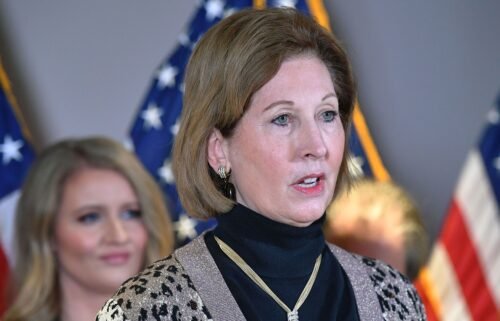Tuesday’s elections are (mostly) about Trump

It used to be said that “all politics is local.” That’s not really the case anymore.
Voters may be casting ballots for politicians to state government, but their feelings about President Donald Trump will be paramount. That will be on full display in Tuesday’s elections in Kentucky, Mississippi and Virginia.
Kentucky’s Republican Gov. Matt Bevin would likely be a sitting duck if Tuesday’s gubernatorial election were about him. His job approval ratings have continuously been below his disapproval ratings. Even with a late rally in his approval ratings, his net approval (approval – disapproval) rating is hovering around -10 points.
Yet, Bevin has overcome an early deficit against Democratic Attorney General Andy Beshear (whose father was governor). In an average of nonpartisan polls, Bevin actually runs slightly ahead of Beshear, though the race is within the margin of error.
If Bevin does pull out the win, it will be because of Trump. The President won the state by about 30 points in 2016. His net approval rating is about +15 points in Kentucky in an average of recent polls.
The same story seems to be holding in Mississippi. Democratic Attorney General Jim Hood has been popular enough to be reelected multiple times. He was ahead in early polls of the race against Republican Lt. Gov. Tate Reeves.
The polling, though, has shifted in recent months. Reeves is up by about 5 points in an average of nonpartisan polls. Hood could pull it out, though it seems much less likely than at the beginning of the year.
You can’t help but think Trump’s standing has something to do with Reeves gaining ground. Trump won Mississippi by about 18 points in 2016. His net approval is about +15 points, just like it is in Kentucky.
Hood and Beshear would likely have been in much better shape if the elections were taking place last decade. They would have had an easier time escaping the partisan leans of their state.
After the 2009 elections, about 40% of states had a governor of the opposite party that won the 2008 presidential election in a given state. Currently, about 20% of states have a governor of the opposite party that won the 2016 election in that state.
If there is good news for Democrats on Tuesday, it’s likely to come out of Virginia. All the seats in the state House and Senate are up for grabs. Republicans, including vacancies, hold a slim 20-19 seat 1-seat majority in the Senate and a 51-48 seat majority majority in the House.
Those slim majorities are in massive trouble, however. Why? Trump’s running about a -20 point net approval rating in the state. Just two years, Democrats made big gains in the state House. There’s a good chance that they finish off the job tomorrow.
Were Democrats to do well in Virginia, it could be a sign of things to come in 2020. In 2017, Democratic Virginia state House candidates won the state popular vote by a little less than 10 points. A year later, Democrats won the US House popular vote by a little less than 9 points. That is, the Virginia 2017 House results were slightly to the left of the 2018 midterm results, though still highly predictive.
I would caution reading too much into the exact margin in Virginia. We don’t know if an off year really is predictive of a presidential year, even in these polarized times.
Still, Kentucky, Mississippi and Virginia are likely to be an illustration that a more accurate saying now is that “all politics is becoming increasingly national.”


